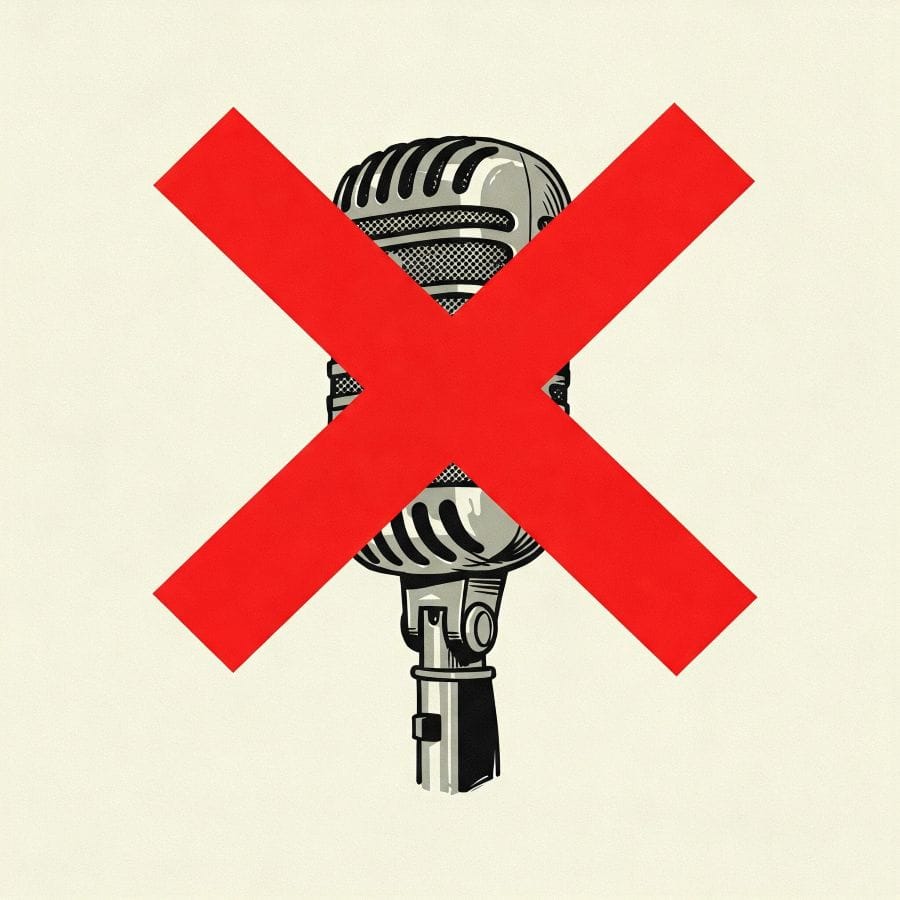Mexico Declares War on 'Narco-Ballads' as States Ban Thug-Glorifying Tunes
Mexican states are increasingly banning or restricting the performance of narcocorridos, popular ballads glorifying drug traffickers and violence, in an effort to combat the promotion of criminal culture.

The drums of war are beating, but this time the enemy isn't a rival cartel – it's the music.
Across Mexico, a controversial crackdown is underway against "narcocorridos," the hugely popular ballads that glorify the high-flying, blood-soaked lives of drug traffickers and their cold-blooded crimes. State governments, fed up with tunes that turn cartel kingpins into folk heroes, are slapping down bans, canceling concerts, and hitting performers with massive fines in a desperate bid to stop the music that many say fuels the country's epidemic of violence.
For decades, narcocorridos have been the unofficial soundtrack to Mexico's drug war, spinning yarns of shootouts, luxury cars, mountains of cash, and brutal revenge. Artists with names like "The Tigers of the North" (Los Tigres del Norte) and the current chart-topper Peso Pluma have raked in millions singing the praises of cartel bosses and their exploits. But while fans see them as modern-day folk tales, authorities and many citizens view them as dangerous propaganda that normalizes — and even encourages — the brutal violence that has ravaged the nation.
Now, the hammer is coming down. While there's no nationwide federal ban yet, states and municipalities are taking matters into their own hands, enacting their own rules to silence the narco-crooners.
The Cost of Singing for Thugs
The heat is on from the borderlands to the heart of Mexico.
In Baja California, home to violent cartel turf wars, officials aren't messing around. Since November 2023, new regulations are in effect specifically targeting performances that "interpret or promote the culture of violence or crime linked to narcotrafficking." The penalty for singing a ballad about a drug lord's latest massacre? A staggering fine that can hit up to 12 million pesos (over $700,000 USD). Ouch.
Further south, the state of Chihuahua has been ahead of the curve, with a ban on concerts promoting narco culture and violence in place since way back in 2015. Even major acts like Los Tigres del Norte and Peso Pluma have reportedly seen shows canceled or sanctioned there, feeling the sting of the state's zero-tolerance policy.
Nayarit and Jalisco have also joined the fray, announcing in recent months that they will strictly apply public event regulations to sanction any performances that apologize for or promote criminal activity and violence. Jalisco officials specifically highlighted cracking down on this music's influence among young people, who are often the most susceptible to the allure of the narco lifestyle portrayed in the songs.
Other states like Guanajuato, Querétaro, and Aguascalientes are also implementing or proposing measures to use existing laws or create new ones to punish events that glorify criminals and violence. The State of Mexico has had similar sanctions on the books since 2023, including potential jail time for promoters or artists who cross the line.
Federal Fight Looms?
The battle isn't just happening at the local level. A major federal legislative initiative is reportedly being pushed in the national Congress by Senator Ricardo Monreal. His proposal aims to amend federal law to explicitly prohibit and sanction the glorification of crime and violence in public events and media across the entire country.
Proponents argue it's a necessary step to stop the constant bombardment of pro-cartel messaging that normalizes bloodshed. But critics warn that a federal ban could infringe on freedom of expression, raising complex questions about censorship and the role of music in reflecting (or potentially influencing) societal issues.
Regardless of the debate, the message from Mexican authorities is becoming increasingly clear: singing the praises of cartel thugs could cost you dearly. As states ramp up their efforts to silence the narcocorrido beat, the stage is set for a dramatic showdown between politicians determined to curb violence and musicians (and their fans) who see the music as a reflection of reality – or simply a guaranteed way to pack a concert hall. The war on narco-ballads is far from over.




